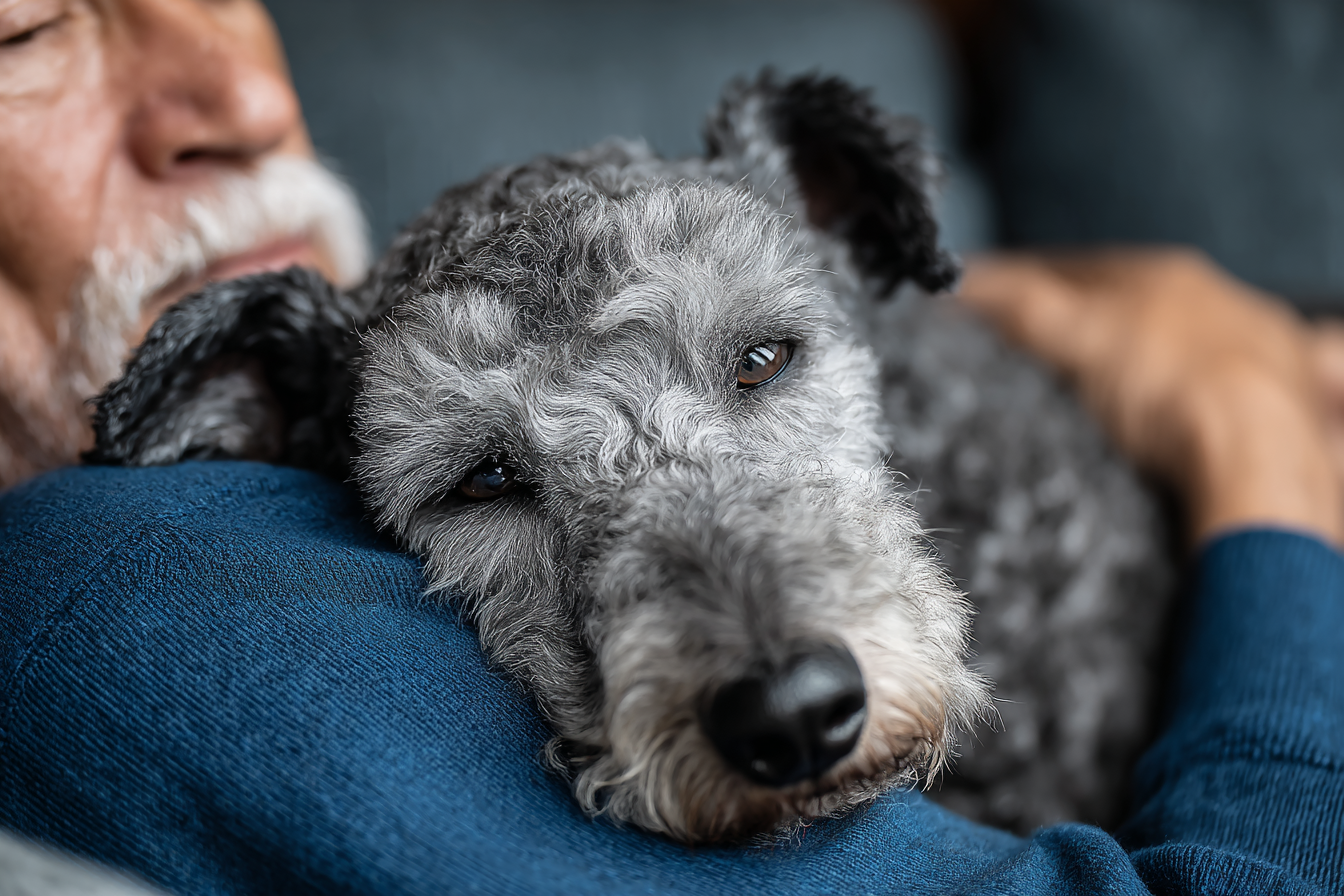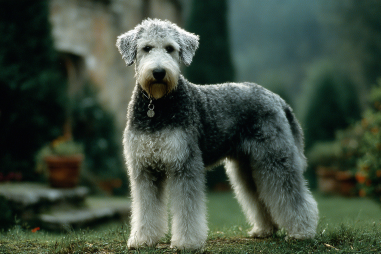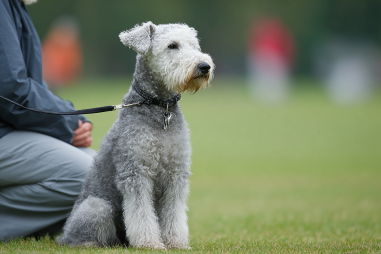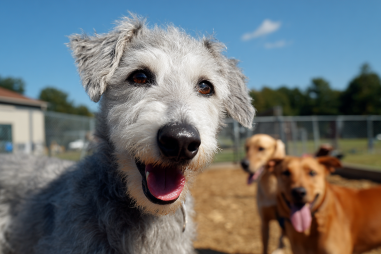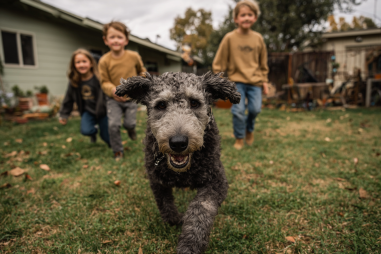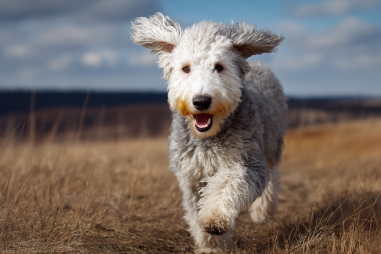Welcoming a Bedlington Terrier into your life means forming a bond filled with companionship, energy, and a unique charm. Like all dogs, these wiry-coated companions age, and understanding their lifespan and aging care is crucial for ensuring they enjoy their golden years comfortably and happily. From recognizing the subtle signs of aging to adjusting their diet and exercise, being informed equips you to support your furry friend through every stage of life.
Average Lifespan Overview
Bedlington Terriers typically live between 12 to 16 years, which is a respectable lifespan for a dog of their size. Their longevity can vary based on genetics, diet, exercise, and healthcare. These terriers are generally healthy, but like all breeds, they are prone to certain hereditary health conditions that can impact their lifespan. Understanding that your Bedlington Terrier has the potential for a long, healthy life allows you to plan proactively for their evolving needs.
Signs of Aging in Bedlington Terriers
Aging occurs gradually, and recognizing the signs early can help you adjust care accordingly. These indicators often include physical, behavioral, and cognitive changes, such as:
- Decreased Energy Levels: Your once active Terrier may begin to slow down, preferring naps over long play sessions or walks.
- Changes in Mobility: Stiffness, limping, or reluctance to climb stairs can signal joint issues or arthritis, common in senior dogs.
- Gray Hair and Coat Changes: The characteristic curly coat may lose some of its luster or begin graying, especially around the muzzle and face.
- Weight Fluctuations: They might gain weight due to decreased activity or lose weight due to dental problems or illness.
- Behavioral Shifts: Signs like confusion, anxiety, or altered sleeping patterns may indicate cognitive aging or other health concerns.
Being attentive to these changes lets you seek veterinary advice promptly and provide the best care environment.
Adjusting Diet and Exercise for Senior Bedlington Terriers
As your Bedlington Terrier ages, their nutritional requirements and exercise needs will change. Maintaining a balanced diet and suitable activity level is critical for their overall health.
Diet Adjustments
Senior Bedlington Terriers often require fewer calories since their metabolism slows down. Overfeeding can lead to obesity, which exacerbates joint problems and other health conditions. Consider these dietary tips:
- High-Quality Senior Dog Food: Choose foods formulated for older dogs, which typically have adjusted fat and protein levels to support muscle maintenance and weight control.
- Controlled Portions: Measure meals carefully to avoid overfeeding, and avoid excessive treats.
- Supplements: Consult your vet about supplements like omega-3 fatty acids for joint health or antioxidants to support cognitive function.
- Hydration: Ensure fresh water is always available as older dogs are prone to dehydration.
Exercise Modifications
Exercise remains essential for maintaining muscle tone, joint flexibility, and mental well-being, but it should be gentle and consistent:
- Shorter, More Frequent Walks: Instead of one long walk, break activity into multiple shorter sessions to avoid exhaustion.
- Low-Impact Activities: Activities like swimming or leisurely strolls on soft ground help reduce joint stress.
- Interactive Play: Gentle games that stimulate the mind and body are beneficial.
- Avoid Overexertion: Monitor for signs of tiredness or discomfort and adjust accordingly.
Common Senior Health Concerns
Knowing what health issues commonly affect older Bedlington Terriers can help you watch for symptoms and provide prompt treatment. Some prevalent concerns include:
- Copper Toxicosis: This genetic liver condition is more common in Bedlington Terriers and may worsen with age, affecting liver function.
- Arthritis: Joint inflammation can cause pain and mobility challenges as your dog ages.
- Dental Disease: Periodontal problems are typical in older dogs, impacting their ability to eat comfortably.
- Kidney and Heart Issues: These organs may decline over time, requiring monitoring and management.
- Cognitive Dysfunction: Similar to dementia in humans, some senior dogs exhibit confusion, disorientation, or changes in social interactions.
Regular veterinary check-ups, blood tests, and preventive care become increasingly vital to catch and manage such issues early.
Enhancing Comfort and Quality of Life
Creating a nurturing environment that addresses the comfort and emotional well-being of your aging Bedlington Terrier helps them enjoy their senior years to the fullest. Consider these strategies:
- Comfortable Bedding: Orthopedic beds can cushion aching joints and provide better rest.
- Accessible Living Space: Minimize the need for jumping or climbing by using ramps or steps, and make food, water, and resting areas easy to reach.
- Regular Grooming: Grooming sessions not only maintain coat health but offer bonding time and help spot skin issues early.
- Emotional Support: Maintain a calm, predictable routine to reduce anxiety, and spend quality time to ensure they feel loved.
- Adjust Activities: Modify stimulation and exercise to match their abilities, avoiding frustration or overexertion.
End-of-Life Care Considerations
Though a difficult topic, preparing for your Bedlington Terrier’s end-of-life care is an important part of responsible pet ownership. Addressing this early helps ensure dignity and comfort when the time comes.
- Recognizing Decline: Watch for signs such as loss of appetite, severe mobility issues, or persistent pain that affect their quality of life.
- Pain Management: Work closely with your vet to provide pain relief and maintain comfort.
- Emotional Support: Keep a soothing environment and maintain close companionship to ease anxiety.
- Decision Making: Consider advanced directives like euthanasia timing in consultation with your veterinarian, prioritizing your dog’s welfare.
- Support Resources: Seek guidance from pet loss support groups and veterinary professionals to navigate this emotional phase.
Understanding the nuances of your Bedlington Terrier’s lifespan and aging care enables you to provide the compassionate and attentive support they deserve. Each stage of their life brings opportunities to deepen your bond while ensuring their health and comfort. With thoughtful adjustments and vigilant care, your loyal companion can enjoy many fulfilling years by your side.

